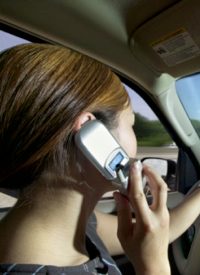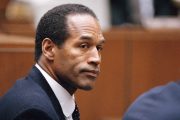
As reported by CNN, the proposed federal ban “is the most far-reaching yet” made by the NTSB, “which in the past 10 years has increasingly sought to limit the use of portable electronic devices — recommending bans for novice drivers, school bus drivers and commercial truckers.” Should the intrusive ban be pushed through nationally, non-emergency calls as well as all texting by drivers would be outlawed. The ban would include both hands-free and hand-held devices, but would exclude devices installed by carmakers.
The NTSB alleges that around 3,092 traffic fatalities last year were caused by distracted drivers — including those texting or on cellphones — but they insist that the numbers may actually be higher. “Needless lives are lost on our highways, and for what?” asked NTSB Chairwoman Deborah Hersman, who is heading up the campaign. “Convenience? Death isn’t convenient. So we can stay more connected? A fatal accident severs that connection.”
Proponents of the ban cite a deadly 2010 crash in Missouri apparently caused by a 19-year-old driver who sent or received 11 text messages in the 11 minutes before the four vehicle pile-up that killed the young man and a 15-year-old student on a school bus, and injured 38 others. “Driving was not his only priority,” Hersman reflected.
A study by the National Highway Traffic Safety Administration supposedly found that at any given moment during the day, approximately 13.5 million drivers are talking or texting on hand-held devices. Distracted driving “is becoming the new DUI,” NTSB member Robert Sumwalt told CNN. “It’s becoming epidemic.” Hersman added that “we’re not here to win a popularity contest” with the ban. “No email, no text, no update, no call is worth a human life.”
While the NTSB can’t impose the restriction itself, it has been applying pressure on other federal agencies, Congress, and even state lawmakers to do so.
However, setting aside the fact that the NTSB proposal represents yet another intrusion by the federal government into areas where it has no constitutional authority, critics say that the feds’ latest attempt to regulate and “protect” the actions of individuals is an exercise in futility.
“Authorities already acknowledge that bans on texting while driving have been ineffective unless accompanied by intensive enforcement campaigns by law enforcement,” wrote Atlanta Journal-Constitution columnist Kyle Wingfeld, “in large part because it’s difficult to catch a motorist doing it.
The lack of enforceability of such a ban is demonstrated by the fact that the 19-year-old driver blamed for the deadly Missouri crash was violating a state law prohibiting drivers under 21 from using a cellphone while driving. It is unlikely that a nationalized ban would have kept him — or anyone else bent on using a cellphone — from the unsafe practice.
Additionally, the 3,092 distracted driving deaths cited by the NTSB were by no means all related to cellphones and texting. Driver distraction could include eating while driving, changing stations on the car radio, talking to a passenger, using a GPS, attempting to read a map, or looking at a billboard — the distractions to drivers are nearly endless.
Critics note that every state has laws against inattentive driving, and such ordinances are sufficient to cover reckless driving because of phoning or texting.
As they have for years with car makers, government bureaucrats are trying to compel the cellphone industry to “partner” with them in their proposed draconian ban. In fact, declared the director of the Governors Highway Safety Association, a cellphone ban for drivers will ultimately depend on “technology that will prohibit the use of these devices while the car is in motion.” Wingfield noted that it would “have to be pretty fancy technology … to detect which cellphone is mine and which belongs to one of my passengers.” And if the technology isn’t that selective, “will passengers also be unable to use their phones in moving vehicles?” Such technology would seem prime for an easy “jail break” override engineered by savvy techno-geeks and proliferated on the Internet for all to use.
While proponents of the ban have tried to portray the problem of phoning and texting drivers as a dangerous epidemic, Wingfield noted that even if one were to accept the government statistics at face value, distracted driving accounts for just seven percent of all traffic fatalities. Is ratcheting up enforcement to the tune of untold millions of dollars in extra cost just to catch and ticket a few cellphone scofflaws really worth a national ban?
Wingfield voiced the common-sense view held by many Americans on such ill-advised proposals: “Unenforceable, arbitrary, over-reaching, resource-intensive regulations like this proposed one will make some people feel good about themselves. But that’s all they will accomplish.”



